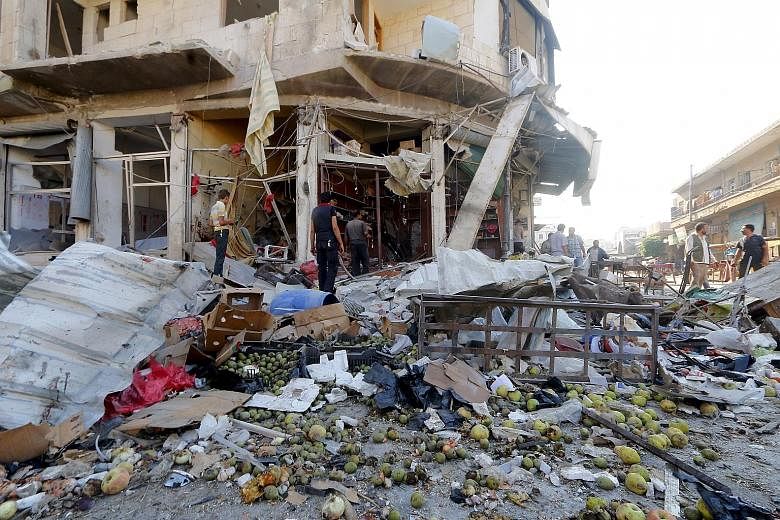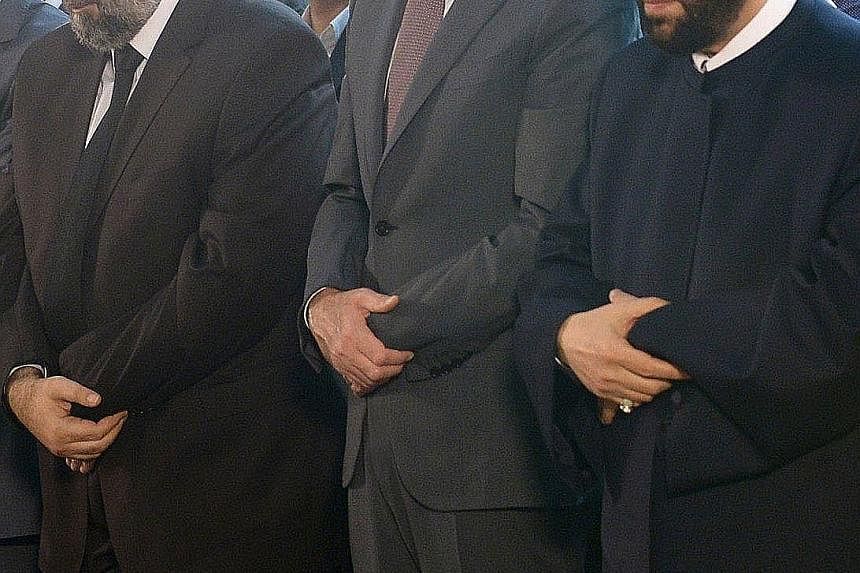BEIRUT • ISIS (Islamic State in Iraq and Syria) militants yesterday publicised the personal information of at least eight Australians, mostly civil servants, after a successful hacking and urged home-grown terrorists to strike them down, the Sydney Morning Herald (SMH) reported.
The militants also claimed yesterday that they had beheaded a Croatian hostage abducted in Egypt, posting a purported picture of the victim's body on ISIS-affiliated Twitter accounts.
A group, which claimed to be the ISIS' Hacking Division, on Tuesday released the list of the Australians, including a Member of Parliament and employees of the Australian Defence Force and Australian National Audit Office, SMH reported.
"We have your names and addresses, we are in your... social media accounts," the hacking group said in a message. "The soldiers of the khilafah (caliphate), who soon with the permission of Allah, will strike at your necks in your own lands."
The list, containing the victims' mobile phone numbers, e-mail addresses, online passwords and details of home suburbs, was released on the heels of the group's publication of information relating to more than 1,400 people, most of them supposedly United States military personnel.
Neil Prakash, Canberra's most senior ISIS militant, yesterday posted links to the Australian list, but many of those affected were unaware of the attack until they were contacted by media, said SMH.
"I am completely at a loss," the MP from Victoria state was quoted by the newspaper as saying. "What do I do? The police probably know less than you and I."
Both the Australian Federal Police and Department of Defence declined to comment on the cyber attack, and did not clarify why those compromised had not been contacted.
"As a matter of principle and longstanding practice, the government does not discuss specific cyber incidents, activities or capabilities," said a Defence spokesman.
In Egypt, an ISIS affiliate yesterday posted a photo showing a decapitated head resting on the back of a headless body, with blood soaking the sand.
The caption for the photo read: "Killing of the Croatian hostage, due to his country's participation in the war against Islamic State, after the deadline expired..."
If confirmed, it would be the first known beheading of a Western hostage held by Sinai Province, the Egyptian group which changed its name from Ansar Bayt al-Maqdis after it pledged allegiance to ISIS, also simply known as Islamic State.
Next to the picture are screenshots of Arabic language news articles with the headlines: "Croatia confirms its support for Egypt in efforts to fight terrorism and extremism" and "Croatia affirms its continued support for the Kurdistan region".
Last week, an online video purportedly from Sinai Province showed a man, who identified himself as Tomislav Salopek, who said that the group would kill him in 48 hours if Muslim women in Egyptian jails were not freed.
Meanwhile, Syria's setbacks on the battlefield against rebels have triggered concerns that ISIS may turn President Bashar al-Assad's crisis to its advantage.
Diplomats from Russia, the United States and several Middle Eastern powers are engaged in a burst of diplomatic activity, trying to head off a collapse of the country that could further strengthen ISIS.
Russia, Mr Assad's most powerful backer, has built new ties with Saudi Arabia, a fervent opponent, and even brokered a meeting between high-ranking Saudi and Syrian intelligence officials.
The flurry of diplomacy suggests that Russia and the United States, whose differences have long jammed efforts to resolve the conflict, are making strides towards goals they have long claimed to share: a political solution to Syria's multi-sided civil war and better strategies to fight the ISIS.
Russia has played the most prominent public role so far in the new diplomacy.
Some analysts said that the discussion reflects a softening of the Obama administration's long-held position that "Assad must go," and a fear, shared with Russia, that the ISIS could be the primary beneficiary if Mr Assad's government continues to weaken, as they expect, or collapses entirely, which they view as less likely but increasingly possible.
REUTERS, NEW YORK TIMES


